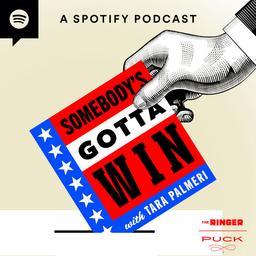Play a stupid game, get a stupid prize. This is true in baseball as with many other contests. March and April have so far been one long, moronic bonanza. It begins with the boogeyman du jour, a once-nebulous acronym imbued with the weight of umpteen other soiled, abandoned words: DEI.
On the morning of March 19, those three letters were added to a URL for an article on the U.S. Department of Defense website about baseball icon Jackie Robinson—and that article was then surreptitiously taken offline. This was done as part of a government-wide purge on all things “Diversity, Equity, and Inclusion” related, orchestrated by the reinstalled Trump administration. The web post, with its references to the veteran Robinson’s “segregated Army cavalry unit”; his onetime refusal “to move to the back of the bus” while stationed at Fort Cavazos, Texas; and the “hatred” of “fans and other baseball players” during his career, was eventually restored later that day after a wave of criticism online. The department's initial press response (“DEI is dead at the Defense Department”) softened into a vapid backstep (“Everyone at the Defense Department loves Jackie Robinson …”), followed by an attempt to somehow frame the life and legacy of the man who broke the nation’s most infamous color barrier outside of “the prism of immutable characteristics, such as race.”
A few weeks later the Dodgers, Robinson’s former team, were at Trump’s White House, seeking to walk a farcical line. Invited following their 2024 World Series title, the club’s key stakeholders insisted that their presidential photo op was an act separate from domestic politics. Star outfielder Mookie Betts refused “to make this political” and called the visit “a privilege”; manager Dave Roberts described it as a "baseball thing” over which the team was "unified" and he was personally “excited about”; primary owner Mark Walter said the franchise was “very pleased” to be there. After 20 minutes of scattershot commentary by the president—about “the eggs” and how “good-looking” the Dodgers players were and how L.A.’s opponent in October, the Yankees, were “a great franchise”—the champs seemed stuck bouncing between awkward chuckles, strained grins, and general uncertainty over what exactly to look at, or even for how long. The team, which watched as Trump chose not to introduce their Democratic congressional representatives, didn't appear to be a group of people not engaged in politics, but rather a group of people engaged only in politics of a certain, conciliatory kind.
There is much absurdity and much shame to go around here.
None more so than the fact that Rachel Robinson—the 102-year-old widow of one Jack Roosevelt Robinson—woke up to an affront on her dead husband’s legacy by the very country he served with honor, only to rise a few weeks later and witness not just the utter silence of the league he integrated, but her husband’s old employer specifically fawning over the brute who ordered the whole thing. A week has passed since that spectacle. Tuesday is the 22nd annual leaguewide celebration MLB formed in Robinson’s honor. Players and coaches of all backgrounds, hues, nationalities, and creeds will wear across their backs, this afternoon and evening, his number, 42. If the events of the last month are any proof, his team, his sport, even some of the folks who are his most direct inheritors will each be largely undeserving of the privilege of that association.
Jackie Robinson’s life was, like so many others before and after his time, hitched to multiple incarnations of what Du Bois called “the color line” in America. Jackie was born in Georgia in 1919, during the same summer in which 20 race riots ensued countrywide and at least 83 lynchings occurred. He was the son of a tenant farmer and the grandson of a formerly enslaved couple. His family moved to Pasadena when he was a baby, and through sheer spunk, talent, and tenacity, he would integrate a web of institutions: his childhood neighborhood and school district, UCLA’s athletic department, the U.S. Army’s officer training program, and, later, both white baseball and corporate America.
After a year in the Negro Leagues, when Robinson fitted himself through the sliver of an opening presented to him in the majors, he was met with nearly anything but open arms. During his first spring training in Florida, white residents ran him and his family out of town. Some opponents refused to take the field against him. He ate alone; stayed in segregated hotels on the road; showered separately from the rest of the squad.
Before he’d even taken the field, his white peers agreed to strike if he was promoted, only later backing down. One manager, in addition to hurling slurs at Robinson, belted out to him from the dugout, “How come you ain’t picking cotton?” He received death threats throughout his career, while on the field pitchers routinely targeted him and opposing base runners spiked him when they slid into second base.
The press turned on Robinson the moment he began to demand his full humanity on the diamond. They branded him “combative,” “emotional,” a “whiner,” a “troublemaker,” a “crusader,” and “rabble rouser” over the course of his career. “Early on they liked Jack because he was being a good boy,” Rachel Robinson told Ken Burns in a PBS documentary on her husband’s life. “He was keeping his mouth shut. And the minute he decided to defend himself they would call him uppity; they would call him a loudmouth to discredit him.”
In the wake of Robinson’s passing, what followed was nearly the opposite: the dulling of his life and actions, the creation of what master sportswriter Howard Bryant has termed “a convenient, unfortunate concoction.” Robinson’s rise became an allegory for white goodwill. Expunged from the narrative of his ascent were the efforts of the Black press and advocacy groups, unions and fringe political parties, to force MLB’s hand. After his retirement, Jackie as the Great Integrator soon came to outweigh Jackie as a change-maker, let alone Jackie as a rebel. The man who demanded that President Eisenhower protect the Little Rock Nine, who canvased and protested and fundraised throughout the Civil Rights Movement, who defended the Black Panther Party back in ’68 and stepped in front of 30,000 people to call Barry Goldwater “a bigot” soon after, was—in death—sandpapered down into a totem.
He was reshaped, sharp edges smoothed down, into something that could be embraced without leaving a mark.
That even this anodyne vision of Robinson might be prey to Trump’s wider culture war was perhaps an inevitability. In the 12 weeks since taking office in January, Trump has already issued three separate executive orders relating to “DEI” and what he terms “anti-American ideologies.” The lexicon stitching together these decrees is dominated by a few recurring touchstones: a concern for “illegal,“ “immoral,” and “shameful discrimination” against white men in the form of “race- and sex-based preferences," which "violate" not just “the text and spirit” of the Constitution but “undermine national unity” and “traditional American values.”
On January 20, Trump issued an executive order to end “DEI” in the federal government, defining the issue as any “employment practices” that didn’t primarily “reward individual initiative, skills, performance, and hard work.” The next day he issued another order with the expressed intent “to deter DEI programs or principles” in the private sector. A little over a week later he issued a third order, this one aimed at outlawing any “ideologies” in American education which contend “the United States is fundamentally racist, sexist, or otherwise discriminatory,” in favor of an unquestionably “patriotic education.”
There are few prisms through which to make sense of one edict declaring the country to not be “discriminatory,” coming a week after two others meant to “combat” supposed anti-white "discrimination" explicitly, other than the view that they’re all just responses to a moving and imagined target. Only a binary politics of grievance connects Jackie Robinson blogs with diversification efforts in government labor, workplace training in corporate America, or affinity groups on college campuses. In this framework, “DEI” is a cudgel—capable of linking the blame for plane crashes and natural disasters and crackpot mechanical failures.
The term means everything because it means nothing. It means nothing because it means everything. Affirmative action, wokeness, critical race theory, intersectionality, DEI—in the mind of modern, Trumpist conservatism they are all the same thing. How much this is responsible for returning him to the White House is hard to say, but what’s not is that nobody is hiding it, not Trump, not his budget director, not his state department sycophants, not the head of the DOGE, especially not the underling responsible for the removal of Robinson’s material from the DoD’s website.
So far, in practice, this has resulted in a bevy of book bannings, various blacklistings, the speech-related targeting of non-citizens, withholding of federal funds from colleges and universities, and the deletion of online content related to Robinson and other trailblazers under the auspices of a government-wide “digital content refresh.” The end goal seems to be purging any information that conflicts with that “patriotic” narrative of American history that Trump and Co. keep crowing on about. This has not gone unchallenged. It might not feel like it, but folks have sporadically resisted. There’ve been lawsuits and statements and protests, and people have tried to defend what they hold dear. What sticks out as it relates to baseball is the reality that—for one reason or another—nobody seemed to do so here.
What’s happening between MLB and the Dodgers, particularly the disconnect between both groups’ private aims and their most recent public acts, is a microcosm of the dilemma that so many institutions around the country now confront daily. How can a public-facing entity uphold their ostensible values in an era of increasing presidential fealty without becoming a target? Is there a way to remain true to one while addressing the other?
What this moment has clarified, above all else, is that there is in fact a line. Values are not apparel. You don’t get to take them off and put them back on. When Mookie Betts said in 2020, “We must not get comfortable when the protesting is over,” we can hear it ringing in our ears five years later when he claims a visit to this particular White House, at this particular time, is “just me being with my team”—just a matter of doing what he “felt was best for the Dodgers.” He ain’t alone. Dave Roberts did his own full about-face from his White House plans under Trump 1.0. When Clayton Kershaw looks into a camera and testifies about the worth of Black life, it’s courting a righteous pushback to be the one handing a custom jersey to a president with these racial politics. That goes double for management regimes, the league office, and ownership at large. In the wake of Trump’s January DEI orders, MLB commissioner Rob Manfred pledged that baseball’s values would remain “unchanged,” even as it scrubs all references to “diversity” from the “careers” section of its webpage. You can’t be a league of pride nights and moving All-Star games and embracing your sport’s most iconic trailblazer and then be silent and complicit here. This doesn’t invalidate everything any of these parties have done, but it damn sure can jeopardize it.
After Betts—among the best and most recognizable members of a shrinking Black American MLB community—was pressed about the switch-up, he went out of his way to call his previous decision to skip a White House visit in 2018 “very selfish” in hindsight. There is, here too, much shame and much absurdity to go around, but none more potent than the fact that in baseball exists an environment capable of prompting someone like him into actually believing something so gobsmackingly dense—to make a player taking a political stance in support of his people feel as if they are letting their team down by not participating in state-sponsored honors.
It is true that this is a business. That it might be expecting too much from a collection of millionaires and billionaires with substantial wealth to lose by making an enemy out of someone with regulatory powers over them. And also that people bend to human pressure—human wills and human desires.
But the guy who used to wear no. 42 on his jersey would’ve demanded more.
“If I had a room jammed with trophies, awards, and citations,” Jack Roosevelt Robinson once wrote, “and a child of mine came into that room and asked what I had done in defense of Black people and decent whites, fighting for freedom. If I had to tell that child I had kept quiet, that I had been timid, I would have to mark myself a total failure in the whole business of living.”


